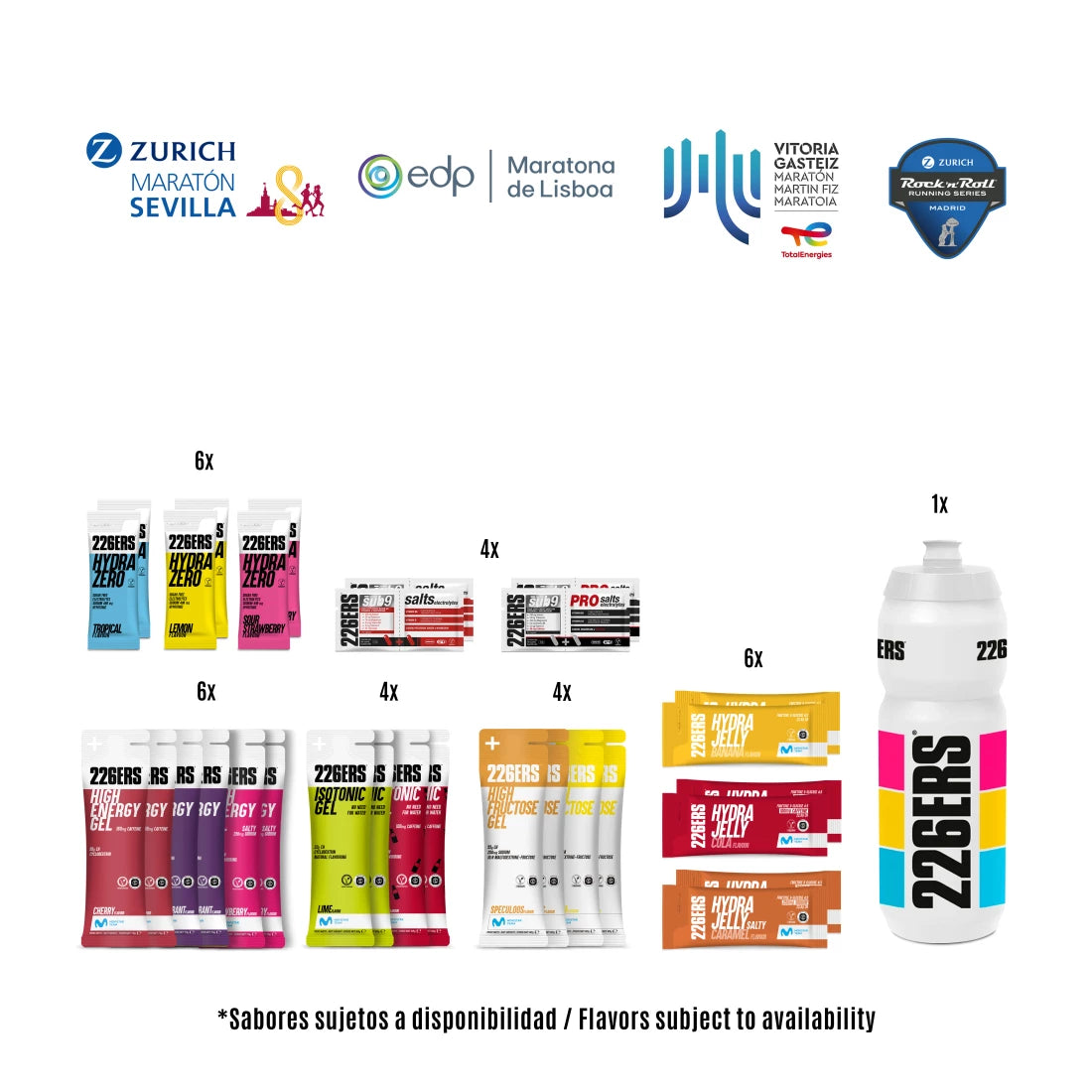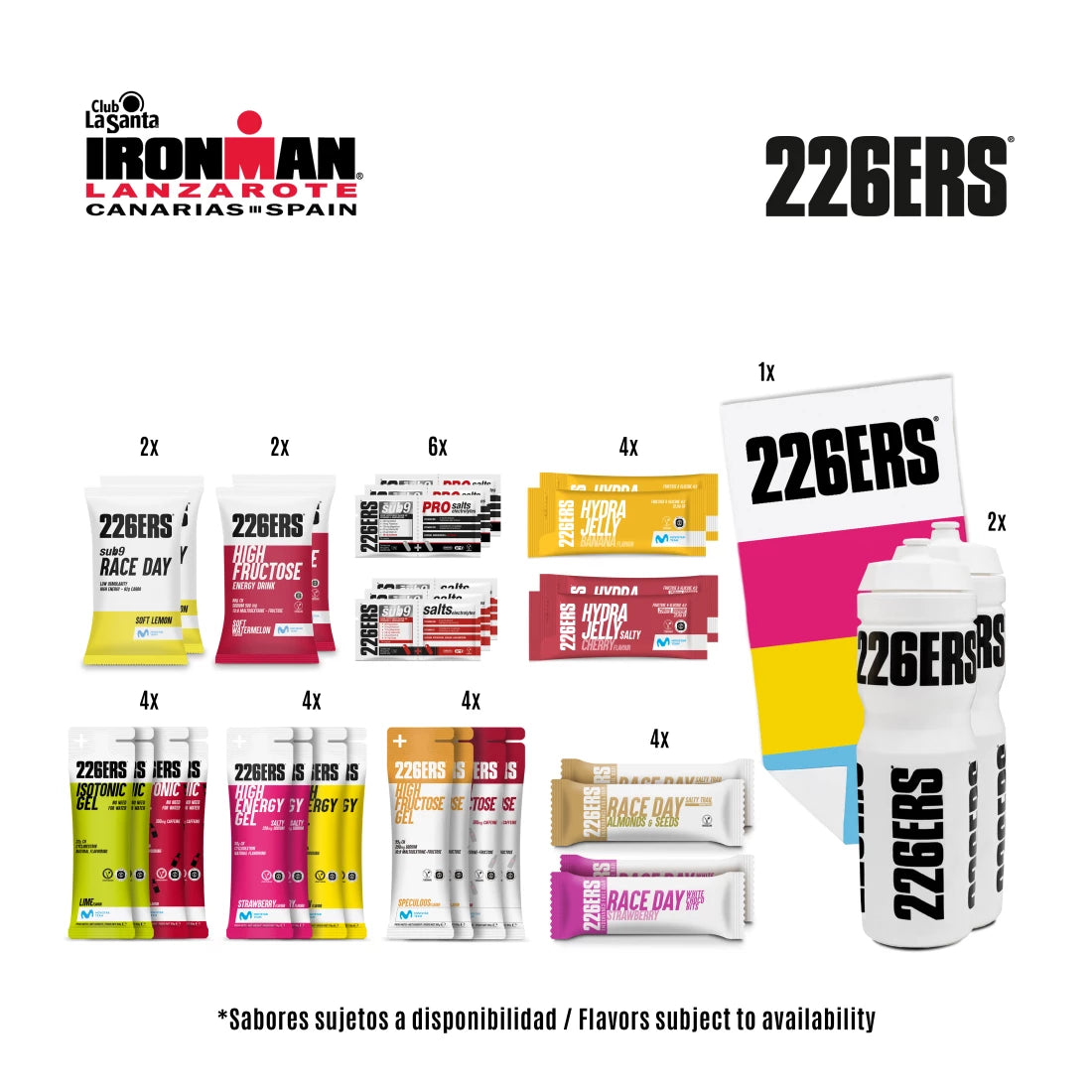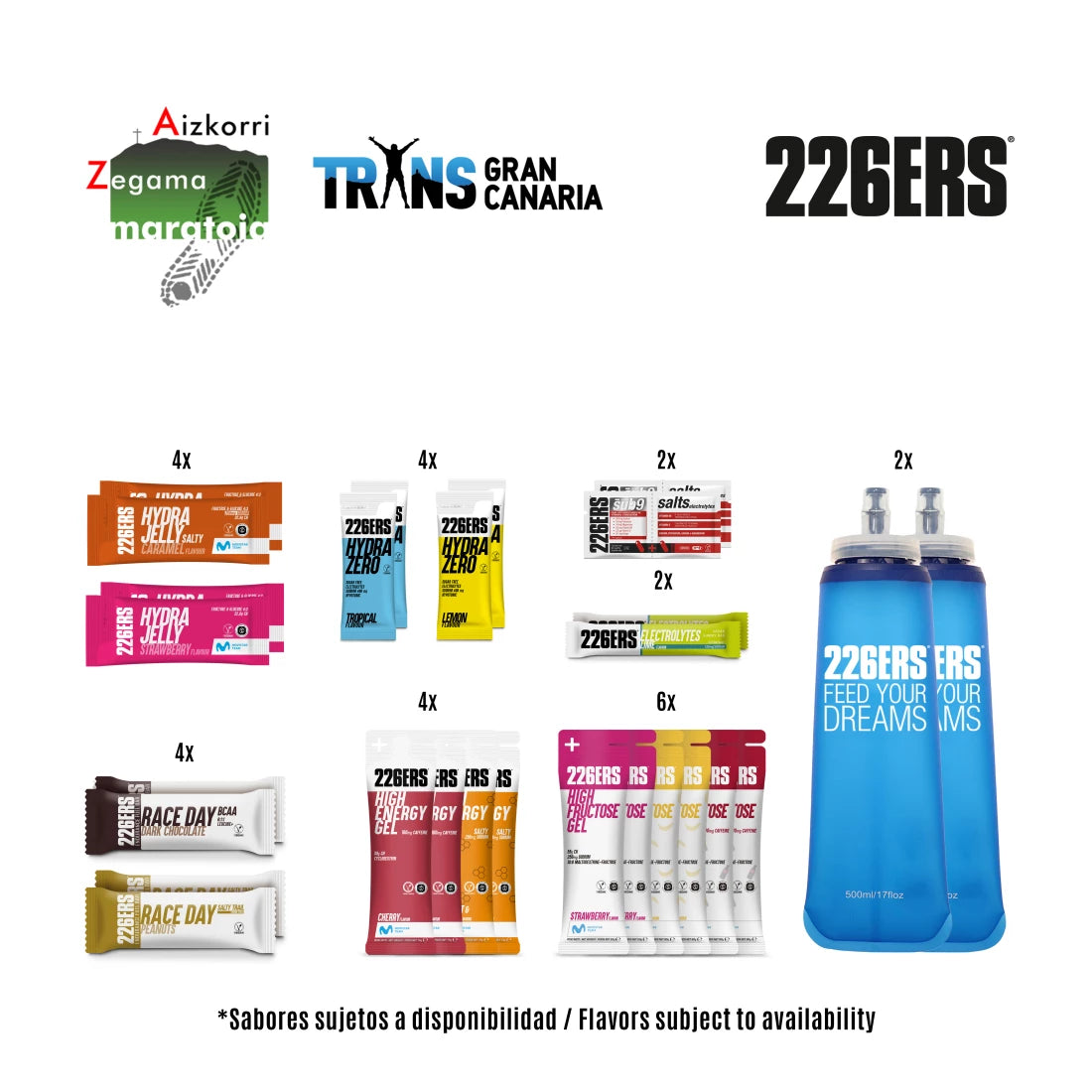Rodrigo Rorro Moath returns with one of his articles full of useful advice based on the experience he has tried, run and suffered. In this case we reveal errors that are frequently committed when recovering to perform better.
Training, rest and nutrition are three basic elements within sport, whatever our goal. It doesn't matter if we are thinking about health or high performance sport, the three factors are essential and the only thing that can vary depending on the objective
It is the proportion of each of them.
For those who do sports thinking about the improvement of performance (either at the popular level or at the elite level),
The training part is usually the easiest to meet, above all, in these times when it seems that so much importance is given to machachism, to showing off being a beast and training a lot, very fast and very hard (a gross misrepresentation of the "No Pain No Pain" that we will talk about some other day).
The importance of nutrition seems that little by little too
It goes through And who else and who least becomes aware of the importance of eating "well", supplemented if necessary with what is needed
being duly advised.
"The break still does not end as necessary"
However,
The rest still does not end as necessary as a necessary part And there is some feeling that time is being missing when nothing is being done. Many stop training only when they have no choice: they cannot even with their soul, they are past threads, they have been injured, ... and sometimes even in those situations, they are still determined to continue crushing.
Without reaching those extremes, there is the group of athletes who seem that they have accessed that it is necessary to rest but that, for some reason,
They still have a certain feeling of guilt (Poquito, but something they have left) or they don't finish doing it properly.
For those in this second case we will make a rapid review of some of
The most common mistakes that can make, voluntarily or involuntarily, we are spoiling a part of that rest and recovery process.
As they say, whoever is free of sin, to throw the first stone, surely we commit totally or partially any of these errors so I encourage you to get to the end and do a little self -criticism, surely they help you
Make some small change that makes you improve or make better use of your recovery process And, that, ultimately, will also improve your training.
Error 1: "Rest" is a word that does not exist in your vocabulary
Training is important, very important, without a doubt, because it is what makes us improve more and more but
Not for more training we will improve more or, at least, if we do not interspeate breaks.
The rest can be total or active, that will already depend on the planning we want
If they do not train, it is not worth training or that if rest is a "loss of training."
"Who has gone through an envelope training of the good knows how bad it can happen"
You have to rest and also lower the load, so that the body can regenerate, recover, ultimately, so that the acquaintance occurs
Supercompensation. If not, not only we will not improve, but it is possible that we end up overnamed and there it will probably stop us, but not to rest, but because our body will demand it to us and that is much worse. Who has gone through an envelope training of the good knows how bad it can happen and how molten the body can be, which is hardly able to simply move.
Tip 1: Includes breaks and load drops on your planning and quantify your tiredness level to know if you are on the right track or if you need to increase these breaks.
Error 2: Do not adapt your energy intake
The recovery days burns much less than training days so
much less fuel is needed In the boilers.
It is not necessary to quote the kilocalory every day what is consumed and what is ingested / replenishes but is something that is adjusted “more or less” and, while it is kept in a similar range, it is enough (a few days can leave a slightly positive balance and others a bit negative that the body will already be responsible for making the adjustment and compensate).
"It is so bad to get short as to go"
It is so bad to fall short with the fuel on training days (the body is going to miss the energy and possibly does not give up),
how to go through excess days of recovery. If we ingest the same amount of calories in a recovery day as in a normal day, at the moment in which the body has filled the possible deficit that it had and already has the deposits (liver and muscles) to full,
The surplus in the form of fat will be stored and probably that is not what we want.
Tip 2: Adapt your caloric intake to what you estimate that you are going to consume so, in the recovery days, that amount decreases. But, be careful, do not pass in the restriction because, ideally, you should eat a little more than you spend, so that the body can replace well.
It is also good that, although in the rest days you take less ergogenic aid because you do not need them, the basic multivitamin or similar complexes do not abandon them. For this, the
K-Weeks Immune.
Error 3: You ignore your muscles
The cane training sessions put us ready and make us improve, but they also leave our muscles loaded and, if the session has been very demanding, acts cough so
They don't hurt that we pamper them a little. The ideal is to go to a professional but this is not always possible or, simply, the accumulated load level does not yet require this intervention and we can manage with something smaller or to walk around the house.
"The benefits that can be obtained when downloading the muscles are very large"
Here they come into play multitude of options, from the
automases, cryotherapy or myofascial release How fashionable it is currently. It is something tremendously simple to apply and the benefits that can be obtained are very large. For those who do not create it, to simply try to play a little with one of those foam rollers, balls or similar things in one of the most grateful muscles with this type of technique: the outer area of the thigh, dorsal, twins, ...
It is the best way to convince its usefulness.
Tip 3: Always have a foam roller and a tennis ball to work myofascial release. You will see that it is very simple to apply it and you will notice improvement, not only in recovery, but also in the exercise itself.
Error 4: Do not take enough protein
Although the trend is changing, resistance athletes continue to give it a lot
more importance to the energy part (mainly carbohydrates)
that to the structural (mainly protein), not only in the "during", but also in the "after."
For many, after exercise, the most normal thing is to think about swallowing carbohydrates within the supposed metabolic window and neglect the rest of nutrients, especially proteins. Of course you have to replenish carbohydrates, but
Proteins, amino acids, vitamins, salts, etc. They are so important or more.
"Do not focus on hydrates, you have to balance them with proteins"
Obviously, the proportions will depend on the type of activity we have done, what we are going to do, what we have ingested before and during, ... but we should not neglect any of the nutrients. In addition, as much as we eat, there are certain assimilation stops with what is useless to put much of one of the nutrients but must be balanced and
putting what we really can assimilate.
Tip 4: For post -exercise recovery, both carbohydrates and proteins that come largely from sources of assimilation for both cases, so that they can become quickly available. For this, the
Recovery Drink It can be very useful since it is a fairly complete recuperator and
It contains an adequate proportion of carbohydrates and proteins.
Error 5: Your sleep pattern is completely anarchic
The body is a perfect machine that works continuously, even when we sleep and, in fact, during sleep is when it takes advantage to regenerate. Not for sleeping more will regenerate more or assimilate more load but
Yes there are minimal limits If we pass them, they will begin to limit our recovery capacity.
It depends a lot on each one, but it seems that the optimal range of sleep hours can move
In the fork of the 6-8 hours, rather around eight and, the more we approach at six, the more probability that the body is not able to recover, not only from physical activities,
but almost for daily life.
And, to curl the curl, it is not only a matter of quantity, but of quality because it is also good to try to follow
more or less stable patterns.
Tip 5: Try to maintain a minimally reasonable sleep routine, which is more or less stable (more or less at the same time) and has a sleep period between six and eight hours. If you can also complement it with a head (read siesta) from time to time, better.
Error 6: You take the elevator to upload a simple floor
We crush and squeeze to lower a second in the chrono, lift half a kilo more in the gym, make a few more kilometers every week, ... but then we take the car to move less than a kilometer, we climb an apartment in the elevator, ...
It is not about being looking for how to exercise more but we can take advantage of many of the activities of the day so that the body moves, not so much thinking about the additional exercise it may suppose, but
thinking that the body is moving with low intensity activities that come very well p. eg.
To discourage After being several hours sitting in front of a computer or simply to facilitate circulation, which helps clean the waste that has generated in the training we have done.
"We crushed but then we take the car for everything"
Tip 6: Use the stairs, go walking to the places if you can, walk if it is a day off, ... anything that makes you move a little and get away from being many hours stopped, sitting, lying, ...
You will help the body be active And you will avoid the typical feeling of being stuck and blocked, which is how the body usually remains if we do not move it. In addition to that you will also take away the remorse of "today I have not done any sport" without having to get a training as such.
Error 7: You pass your stressed rest day
Sometimes we are so lid with the daily work, family and sports chores that we do not have time to fulfill other obligations so we are piled up to make them the rest day.
The result is usually that day
is more stressful and harder That one in which we put cane training because we are going all day from one place to another, we spend many hours standing, we are loaded with cachivaches everywhere, ... with which, in the end, in the end, in the end
It is anything but a day of rest and recovery.
Tip 7: Take advantage of your rest days to do things you can't do on normal days, but
Do not satures them. Plan them with a head, with a little time dedicated to those tasks but keep in mind that on that day, one of your goals is also to rest so, just as in a normal day you reserve the time of sport, on the day of rest, reserve the time that corresponds to recovery.
These are only seven errors that have seemed representative to me and that, as I said at the beginning,
They are so common that I don't think there is anyone who is free of sin and not commit any of them. The list could grow since there are many more, just like the advice, which are mere generic indications
but they could expand and specify everything we would like.
Do you help us expand the list of errors and advice?
#FeedYourDreams
Article based on
"7 Recovery Day Mistakes You Might Be Making."











